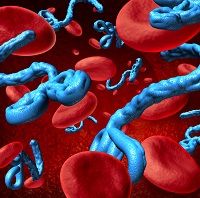Obama Pledges Faster Ebola Response
After meeting with his cabinet last night President Barack Obama pledged to step up the federal response to Ebola. That includes sending in a special US Centers for Disease Control and Prevention "SWAT" team should future cases be confirmed.

After cancelling a scheduled trip today to campaign for politicians in New Jersey and Connecticut to focus on Ebola, President Barack Obama held a special meeting with his cabinet to discuss efforts to stop Ebola. He pledged to step up federal support to contain any future outbreaks of the virus.
That includes sending in team of US Centers for Disease Control and Prevention (CDC) experts whenever a new case is confirmed, he said in an address following the meeting.
"As soon as someone is diagnosed we will send in a CDC SWAT team, hopefully within 24 hours to take the local hospital step by step through what needs to be done," Obama said.
He asked the public to "understand that those protocols work and they have been used sucessfully for decades in Ebola cases around the world," provided they are done properly.
"We have to make sure the local hospitals are walked through that process," he said.
Public concern mounted today with the news that a second nurse who treated deceased patient Thomas Eric Duncan had contracted the disease and had taken a commercial flight from Dallas to Cleveland, OH. Though she had no symptoms when she left Dallas on Oct. 8, she had a fever on Oct. 13, but boarded a Frontier Airlines return flight and came home.
She was admitted to Texas Presbyterian Health, the hospital where she cared for Duncan, but earlier today the hospital said she was being transfered. The nurse will be cared for at Emory Hospital in Atlanta, Georgia which has a special bio containment unit, one of four in the nation. The nurse, identified as Amber Joy Vinson, 29, should not have flown once she had a fever, CDC Director Thomas Frieden said in his own news conference yesterday.
Obama said he was certain the nurse's fellow passengers or others she may have come in contact with during her Ohio trip were not in much, if any, danger.
"I offer myself as an example," he said, "I hugged and kissed a couple of nurses --not doctors--at Emory for the valiant work they did in taking care of one patient. These nurses followed the [Ebola] protocols and I felt perfecty safe."
He added that the real solution to reducing risk from a major Ebola outbreak is to control the raging epidemic in West Africa.
To that end, Obama said, he conferred earlier today with the leaders of Japan, France, Italy, Germany, and Great Britain and asked them to contribute further to that effort.
"If it rages out of control in West Africa it will spread globally," he said.
Helping fight Ebola in those nations affected "Is not just charity," he said.